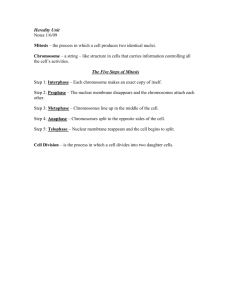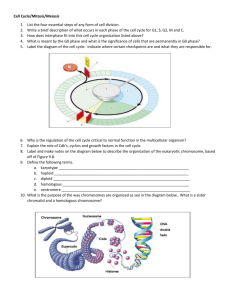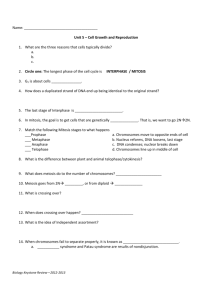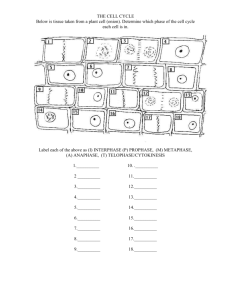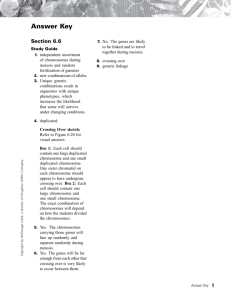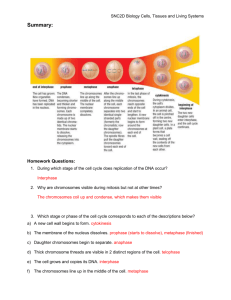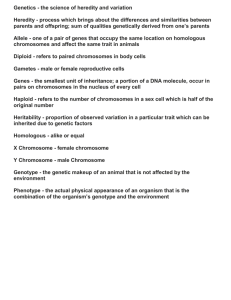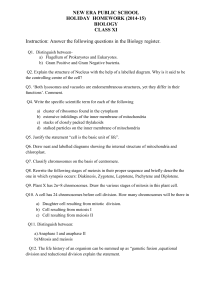Crossing Over & Independent Assortment Investigation
advertisement
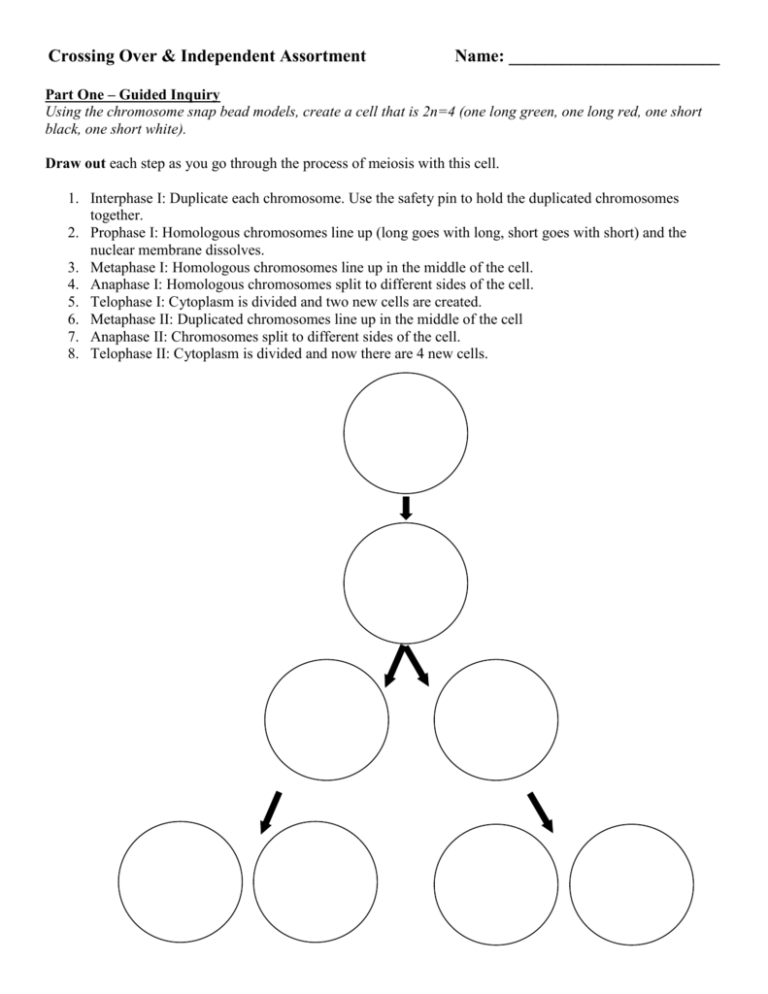
Crossing Over & Independent Assortment Name: ________________________ Part One – Guided Inquiry Using the chromosome snap bead models, create a cell that is 2n=4 (one long green, one long red, one short black, one short white). Draw out each step as you go through the process of meiosis with this cell. 1. Interphase I: Duplicate each chromosome. Use the safety pin to hold the duplicated chromosomes together. 2. Prophase I: Homologous chromosomes line up (long goes with long, short goes with short) and the nuclear membrane dissolves. 3. Metaphase I: Homologous chromosomes line up in the middle of the cell. 4. Anaphase I: Homologous chromosomes split to different sides of the cell. 5. Telophase I: Cytoplasm is divided and two new cells are created. 6. Metaphase II: Duplicated chromosomes line up in the middle of the cell 7. Anaphase II: Chromosomes split to different sides of the cell. 8. Telophase II: Cytoplasm is divided and now there are 4 new cells. You just went through the process of meiosis! Now let’s take it up a notch and include homologous chromosome crossing over. Setting Up the Cross-Over: Set up your original 2n=4 cell again. Start going through the process of meiosis. Duplicate your chromosomes. Pair the homologous chromosomes together (long with long, short with short). Now stop. Here is the part where crossing over occurs. With your long chromosomes, cross the inside two chromatids at the bottom (just like the diagram to the left). When they cross they actually switch genetic information with each other. To represent this, take the last 3 beads off the crossed arms and switch them (see the diagram to the left). Draw your homologous pair (or tetrad as they call it in the science business) that has recombined as well as the chromosome that didn’t in the circle diagrams below. Now continue the process of meiosis until you reach 4 new cells. Are these four new cells the same as the four cells you created earlier? Why/why not? Part Two – Open Inquiry: Crossing over is one way to get different cells, go through the process of meiosis a couple more times with the models to see if there are other ways to get different cells. Draw every new gamete (haploid) cell you create. Show me what you came up with. 1. What is another way you found to create different sex cells (besides crossing over)? 2. Why are we all different? Even different from our parents and siblings? 3. How does this simple demonstration relate to the real deal? Part Three – Application: Let’s Make Some Babies! Take one sex cell that you created and find another classmate to make a baby with (not literally, weirdos). Put all of your chromosomes together into one cell (sperm + egg = baby). You should now have a cell with 4 chromosomes in it (2 long, 2 short). Let’s say your baby grows up quick and begins to create his/her own sex cells. Go through the process of meiosis once more to see the possible gametes your baby can make. Do you see any of the combinations that you found earlier in the open inquiry?
